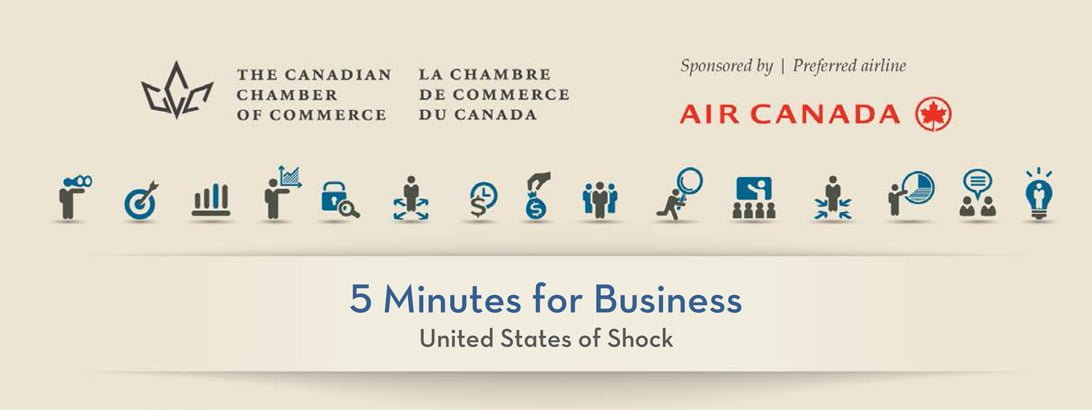Wow! Everyone got it wrong—pollsters, analysts, pundits—we’ve all been underestimating Mr. Trump’s appeal from the first day he announced his candidacy, our worst forecasting error since Brexit. Actually, it’s much worse. So what comes next? And what does it mean for Canadian business?
The big issue is what drove Mr. Trump’s victory, most importantly the surprising success among whites without college degrees. Here, education is serving as a proxy for a whole variety of factors. College-educated people are concentrated in the big cities, with higher paying jobs that benefit from trade and globalization. Non-college educated people tend to reside in rural areas, where employment remains depressed. We’re seeing an urban-rural divide between the parts of the country that are succeeding in the 21st century economy and those that are not. And a wave of rural anger has brought about the first Republican President who is opposed to trade.
This has big consequences for Canada. One of the most important jobs of the Canadian Prime Minister is to maintain a strong relationship with the President of the United States. Even if they can’t stand each other and (especially) are on opposite ends of the political spectrum, they still have to get work collaboratively.
It will be fascinating to see how Prime Minister Trudeau manages this. In the past, Canadians have punished PMs for appearing too chummy with the American President, and Mr. Trudeau’s base will be loath to see any hint of a bromance with Mr. Trump.
For Canadian diplomats and businesses, our job is clear. We have to make a muscular case for trade to prove that NAFTA is in America’s interest. Since it came into effect, U.S. exports of goods to Canada are up 179% and services are up a staggering 237%. In 2015, Canada bought $48 billion of vehicles and $43 billion of machinery from the U.S., much of it manufactured in states like Michigan and Ohio where the industrial heartland voted for Mr. Trump. Unemployed Canadians can’t buy as many cars.
The government will also have to rethink Canada’s trade strategy in Asia. The Trans-Pacific Partnership is now dead and buried, but we may have an opportunity to work on a bilateral deal with Japan.
On the environment, it’s difficult to proceed with a global agenda on climate change if the world’s largest economy is absent. (Mr. Trump promised to pull the U.S. out of the Paris Climate deal and rescind President Obama’s regulations on CO2 emissions). However, green policy innovation will continue at the state level in states like California, Vermont, and Massachusetts.
On the overall economy, some economists have warned of trade war and global recession, but these scenarios depend on a whole series of assumptions: to what extent Mr. Trump will actually proceed with the anti-trade rhetoric, whether he can enact the necessary legislation, what he can negotiate and the response of other countries. The point is that there are many steps before we get to global trade war.
The republican Senate and House will certainly pass some tax cuts and will agree to his plan to spend on infrastructure, which will have some stimulative effect, but a big increase in deficits could be inflationary. It’s too early to tell. Overall, we’re optimistic about the resilience of the U.S. economy and we’re hopeful about the American system of checks and balances.
For more information, please contact:
Hendrik Brakel
Senior Director, Economic, Financial & Tax Policy
613.238.4000 (284) | hbrakel@chamber.ca



